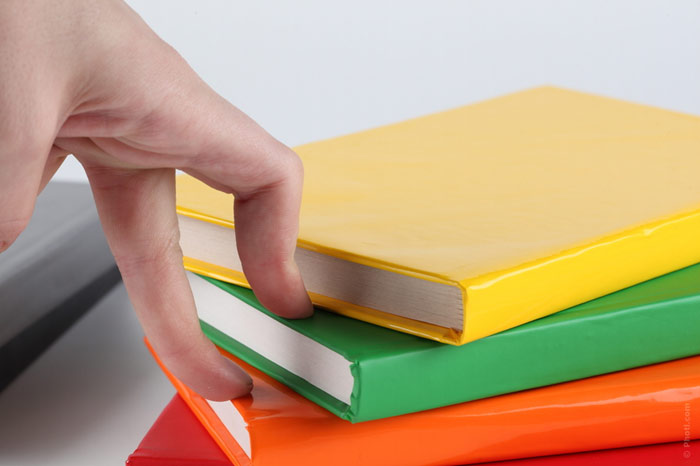Today we’ll talk about how to obtain the maximum important information from useful literature and never forget it. To do this, you must develop the habit of systematic reading and proper work with notes.

In his book How to Talk About Books You Have not Read, author Pierre Bayard gives the classification of unread books, including the ones the content of which we have forgotten. The process of forgetting may at one moment reach the point where our understanding of the book equals that of a person who has never held it in his/her hands.
There is a logical question: why do we read useful books, if we do not take any knowledge from them? Should we reconsider our attitude to the process of reading and change it in order to learn something useful from books and apply it in life?
What do you do after you have read a non-fiction book?
Do you put it in a prominent place for others to see what you are reading and how good you are in general? Do you give it to another person to read or return to the library? Do you delete the electronic version? Are you looking for something with a similar subject? Or do you simply leave it in the bookcase and never return to it again?
- If this concerns you as well, you lose the opportunity to use the new knowledge to your advantage and forget the bigger part of the book.
- Most of us read passively. We look through the information, reading Twitter at the same time or replying to messages, and hope to be able to apply at least a grain of this valuable knowledge in our life.
- Reading in such a way, we just go from one book to another with a small amount of information and quickly forget everything that we have just learned.
- What a waste of time! Acting correctly, you will be able to enjoy non-fiction, actively learn and build a system for yourself, not to forget anything important from the books you read.
1. Look for books
If you read popular scientific and business literature to learn something new or make something new (to meditate, to do fitness, increase sales, and so on), the process of selecting books should be approached very, very carefully.
The best option in this case would be to listen to professionals rather than buy a book by an unknown author in the nearest bookshop.
Be sure to read the reviews on the web. Of course, books are a matter of taste, so the assessment can range from “great” to “disgusting.” Therefore, pay attention only to the responses supported by arguments. The rating also can tell a lot about the book; if many people evaluate it favorably, it deserves your interest.
Ask those whom you consider to be experienced in the field of your interest for advice. People love to give advice. Therefore, this request will not be rejected even by unfamiliar people.
It is even easier to make the best list of books. If you want to learn how to write selling texts, search the web authors and copywriters who are doing it professionally: in their blogs, they constantly give lists of books that they recommend for reading. Look for a common ground. One person may like the book, while the other will consider it useless – but if different people recommend the same book, it is a good sign.
Having created the list of the books, proceed to the next step.
2. Read and take notes
We tend to read fiction for pleasure, for aesthetic satisfaction. It requires a thoughtful, moderate reading. Good fiction books should be read thoroughly. Non-fiction can be read quickly. We have to absorb the most useful information, so you can practice speed reading of the scientific and popular literature.
As you read, mark significant places and the ones that you think are worth remembering. With e-books, everything is quite simple – each reader has a bookmarking function. If you belong to the old school and prefer paper books, tear sheets for taking notes or bookmarks with a taped edge are ideal for these purposes.
The more you read and observe, the easier it is to filter out the useful information.
In most good books, you can clearly see the logic of narration and argumentation. You at once see where the introduction, the body and the final conclusions are; thus you are able to quickly understand what part can be skipped.
When you finish reading a book, do not start to immediately remove all your notes. Wait. Instead, continue to read books related to the topic you have just read about (assuming that you want to advance in the selected area) or start reading any other book. Not to forget what you have read about, start a new list – a list of the books from which you need to remove the notes. To do this, any application for taking notes will be perfect – Google Keep or Evernote.
Why not to remove the notes at once? For two reasons
Firstly, the information in your head needs to be sorted out, and it will take time. The long-term memory will contain more information when there is some time between the first and second impression. Wait for a few days before you read the important information.
Secondly, you will not waste this break and continue reading. If you continue to read books on the topic, you’ll see what ideas are reiterated, and which ones appear only once or twice. If you come across a specific idea that is developed by only one author, take it with a little skepticism. But if some tip is found in virtually every book, most likely you need to write it down.
Taking notes is also an effective way to determine which book is worth reading from the very beginning to the end, and which one can simply be looked through.
If you read and do not make any notes in the process, this may indicate that there is not much useful information in the book. This rule has two exceptions: for example, the book may not include a lot of conclusions, but nevertheless it may be wonderful. But if you read a book for learning and cannot find any significant conclusion there, it can be a waste of time.
So you’ve read enough books, and we can move to the next step.
3. Remove your notes
- Remember that you do not just arrange your notes and copy them. You will lose a lot of useful information this way.
- Instead, look through the entire book, briefly stopping at the point where you took notes. In such a way, you will refresh the memory of the context and will be able to easily combine disparate pieces of information, as well as pay attention to the things, the importance of which you could not understand before.
- Why is that? Because now you have formed a higher level of understanding of the entire book and you understand why some of its parts are organized that way and why things that you have not noticed before are worth adding.
- Select all the right pieces of text and ideas and keep them all in one place. For these purposes, Evernote or a plain notebook will be suitable again. You just need to select a convenient tool.
- Now that you’ve refreshed the memory of the book and collected all the notes in one place, you need to remove it from the list of books where you got the notes from.
- You have all the necessary information, if you need to refer to the book in future. In addition, you can combine these notes with the notes from other books to get an all-encompassing knowledge of a particular topic.
What comes next?
Very often, people who have just learned about this method ask the question if anyone actually goes back and re-reads their notes.
Yes and no. Some people come back, some do not, and that’s good. Remember the school days and cribs: while you write something on a piece of paper, everything is memorized by itself, and it makes no sense to use the crib at a test.
Therefore, in this case the result is not important: it is not the huge collection of notes that is important, but the process itself: you read carefully, highlight the most important spots, spare some time to build awareness and refresh the things you have in your memory with the help of notes.
Notes are not just helpful; they allow remembering the important information better and translating it into long-term memory. A rough (or digital) copy serves as a backup.
And even if you never refer to your notes, they still train your ability to retain knowledge from books.
Step by step
Let us generalize all of the above mentioned in order to avoid having to re-read the article if you need to refresh its content in memory:
- Make a list of books, following the professionals’ recommendations.
- Learn to read nonfiction quickly.
- Highlight important parts.
- When you finish reading a book, add it to the list of books from which the notes must be sorted out.
- Put the book aside for a week or two.
- Go back to the book; scan it quickly, paying attention to the important parts, and write notes.
Or maybe you have your own proven methods? Let’s share them in the comments.










